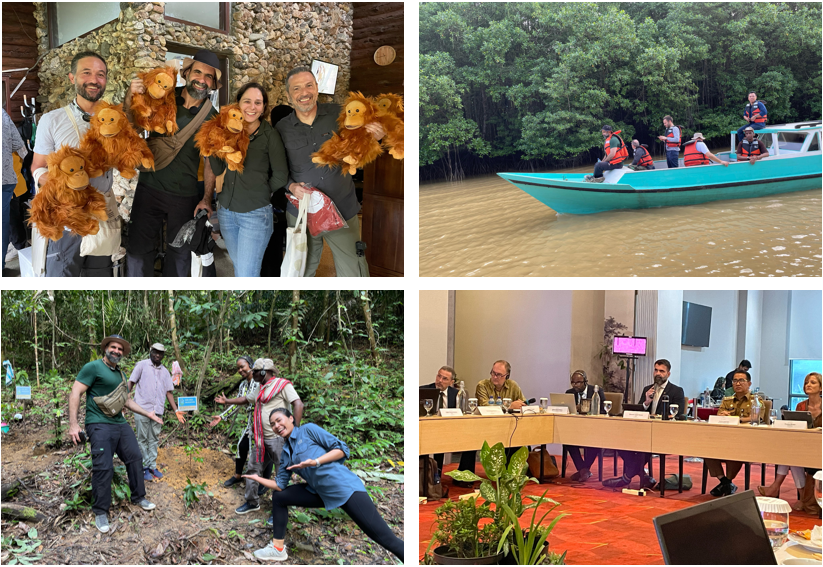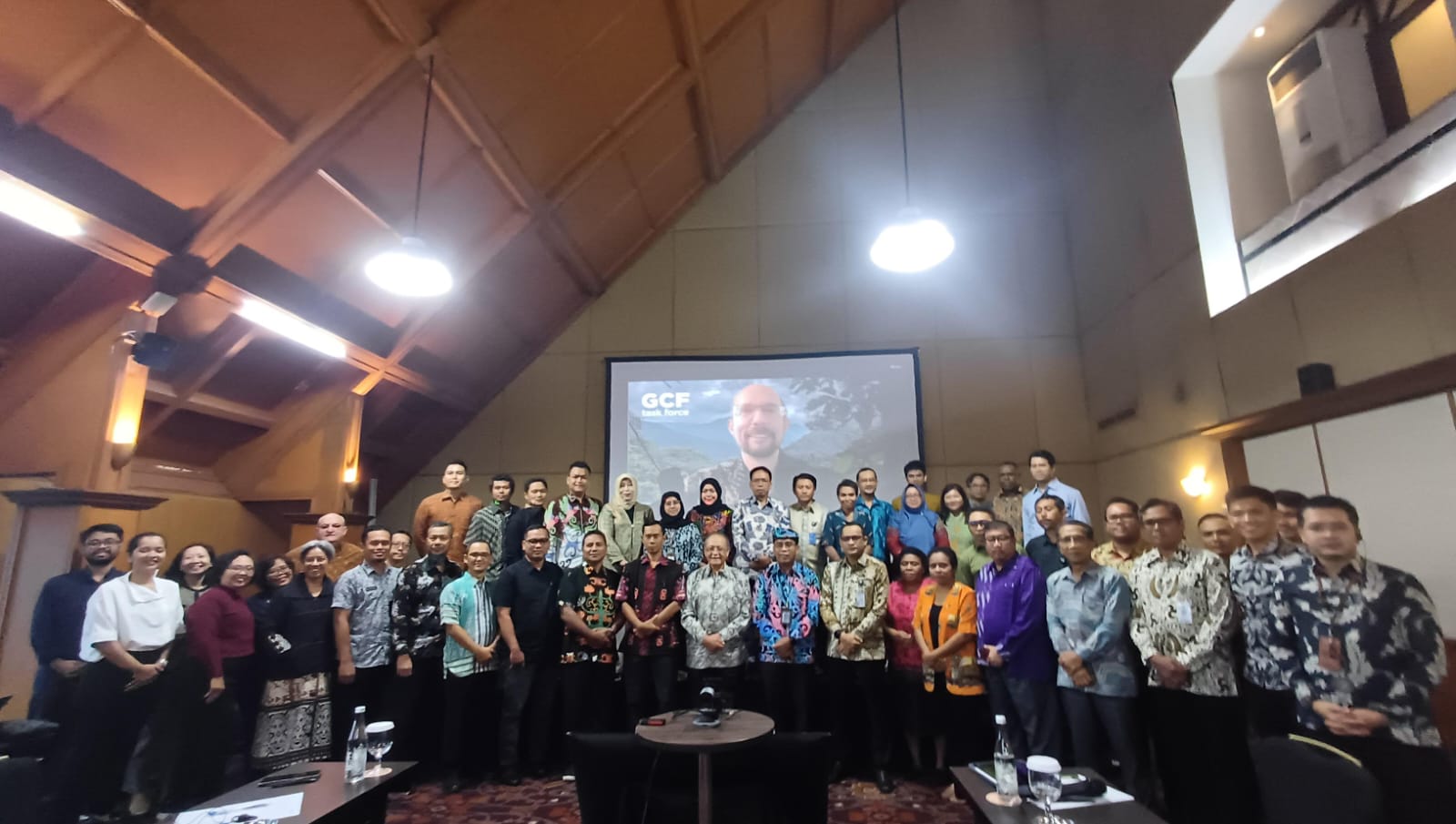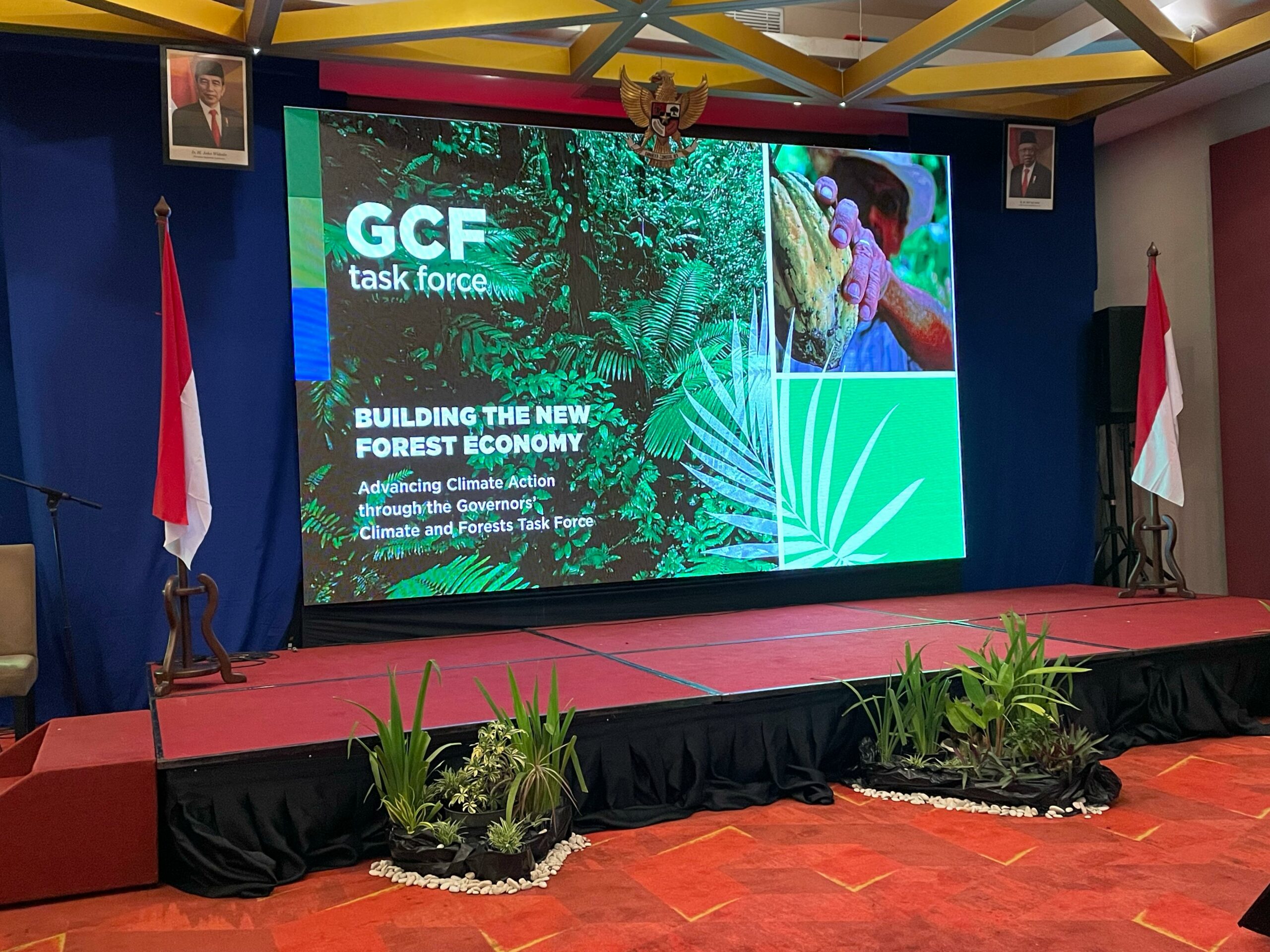Exploring Bioeconomy: A Sustainable Economic Frontier at GCF Task Force Indonesia’s Regional Meeting, and a South South Knowledge Exchange with Brazilian guests
Under the leadership of Syahrina Anggraini, the Governors’ Climate and Forests Task Force Director for Indonesia and with support from the Global Secretariat, the GCFtf Indonesia hosted an influential regional meeting in Jakarta. This meeting, centered on the exploration of bioeconomy potential and landscape-based investments, convened policymakers, experts and stakeholders from various sectors to explore the integration of sustainable economic practices in response to the global climate crisis.
The event started with an inspiring virtual presentation by Jason Gray, Project Director of the GCF Task Force. He highlighted the strategic focus on bioeconomy development under the network’s vision of the New Forest Economy, a development alternative that gained protagonism at the 13th Annual Meeting in Yucatan, Mexico. The bioeconomy in all tropical regions focuses on creating sustainable economic systems by utilizing the country’s rich biological resources within its tropical forests, conserving biodiversity, and incorporating local cultural and social diversity – and is a fundamental piece of our networks’ work to tackle shared development problems in our member jurisdictions. This model promotes sustainable practices such as ecotourism and the harvesting of non-timber forest products, supporting economic development while maintaining ecological integrity. Such an approach will not only aid Indonesia’s protection of diverse ecosystems but also ensure the livelihoods of local communities, aligning with both national conservation strategies and global sustainability objectives.
The first day of the workshop featured a panel on the Policy Landscape, where the Director General of Sustainable Forest Management of the Ministry of Environment and Forestry (MoEF) and other notable figures discussed national-level policies supporting bioeconomy at the provincial level. This was followed by sessions showcasing bioeconomy development potentials from seven member provinces in Indonesia, highlighting diverse initiatives like ecotourism, improved mangrove and biodiversity management, and the development of non-timber forest products (NTFPs).
The second day focused on practical experiences and collaborations necessary for bioeconomy growth. Presentations from development partners and the private sector, including a virtual presentation by Silvia Llamas from GCF Task Force Mexico, illustrated successful bioeconomy activities. The panels featured contributions from entities such as YKAN, which discussed community assistance for sustainable cocoa in East Kalimantan, and Pipiltin Cocoa, a sustainable chocolate producer sourcing beans from GCF Task Force member provinces.
The workshop concluded with discussions on landscape action and supply chain investments, emphasizing the need for integrated efforts to harness the full potential of bioeconomy. Noteworthy contributions came from Lestari Capital on the Rimba Collective program, which supports funding for conservation activities, and Rainforest Alliance with their collective landscape action plan.
This Jakarta meeting not only fostered a deeper understanding of the bioeconomy as a sustainable economic alternative but also reinforced the network’s capacity to implement impactful bioeconomic projects across Southeast Asia. The insights and commitments garnered promise substantial environmental and socio-economic benefits, setting a strategic path forward for the integration of bioeconomy into economic planning and environmental strategies in the region.
The South-South Knowledge Exchange
Held in Balikpapan and Bali, the South South Knowledge Exchange event built on the same themes as the GCFtf Indonesia regional meeting by exploring practical conservation strategies and collaborative efforts among Indonesia, Brazil, and the Democratic Republic of Congo to combat deforestation and promote sustainable land use practices that support both biodiversity and water resource management.

Delegates from Brazil getting to know a famous Indonesian, and global, symbol of tropical forest protection and biodiveristy in their natural habitat: the Orangutan!
The South-South Knowledge Exchange (SSKE) event, held in Balikpapan and Bali from May 24-29, 2024, facilitated crucial discussions on deforestation and conservation strategies among Indonesia, Brazil, and the Democratic Republic of Congo. Organized by the World Bank, this series followed the 10th World Water Forum, highlighting sustainable funding needs and the importance of collaboration among Global South countries. In Balikpapan, the focus shifted to subnational initiatives, featuring insights on jurisdictional REDD+ programs and conservation efforts, illustrating the varied approaches taken by different regions within the participating countries.
During the event, significant contributions were made by key figures such as Eduardo Taveira, Secretary of Environment of the States of Amazonas and member of the GCF Task Force Executive Committee, who presented the global and regional conservation efforts under the GCF Task Force framework – the Manaus Action Plan. His discussions underscored the power of convening and collaboration facilitated by the GCF Task Force, which was echoed in presentations by other delegates including those from Brazil under the SSKE agenda. These interactions highlighted the effective cross-national exchange of knowledge and strategies, reinforcing the importance of integrated approaches to environmental management and economic development in forest-rich regions. Additional insights were provided by Prof. Akmal Malik, Acting Governor of East Kalimantan, who shared how the province’s participation in the GCF Task Force supports its green vision, further showcasing the localized impact of global cooperation in forest conservation.


